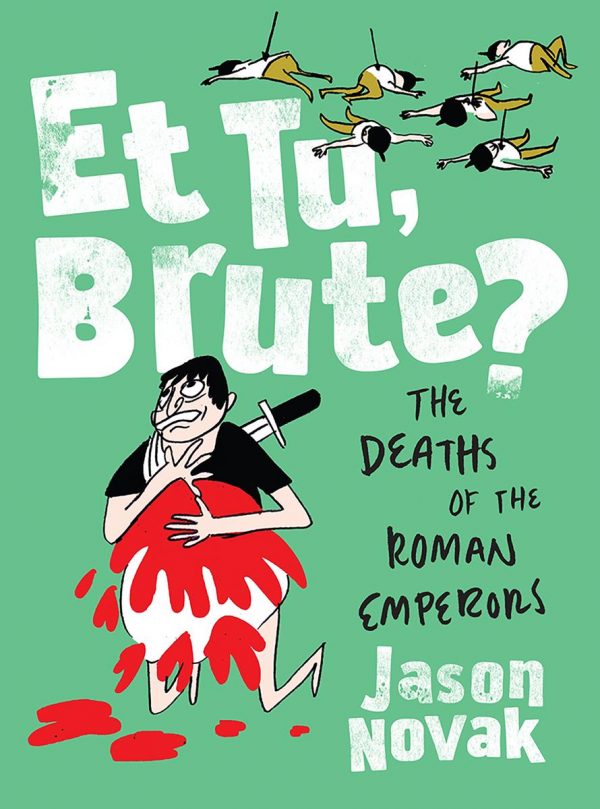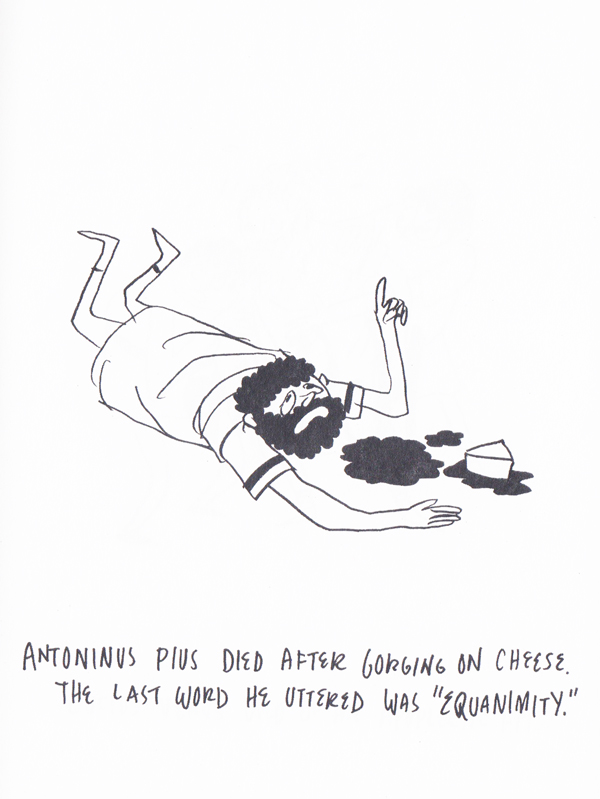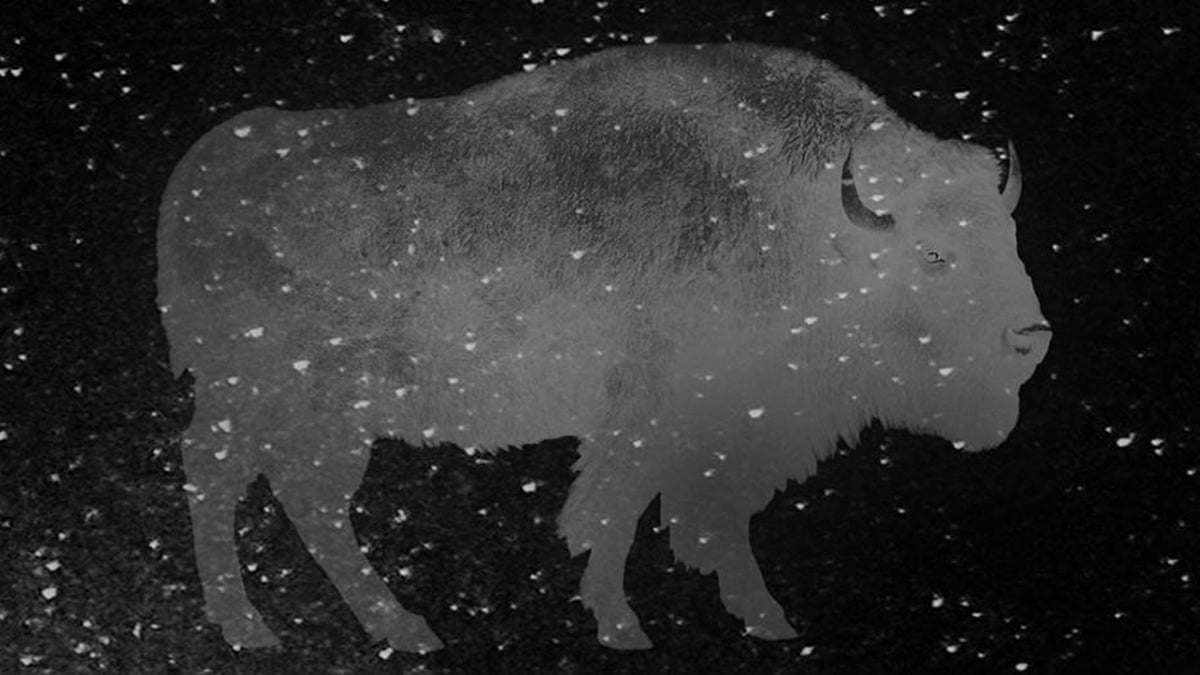There’s a whole lot about the current political climate in the United States that makes Jason Novak’s Et Tu, Brute?, which will be out in June, one of the best reading choices you can make. I’m not talking about the Nazism or the corruption or the constant misogyny or inept decision making or the authoritarianism or any of that. I’m talking about the backstabbing, the constant turnover within the halls of government, of the hostility that is defining not only the streets in the Trump era but the inner workings of the centers of power. Our government has gone all Roman Empire on us, and I can’t decide if that’s a bad thing or not.
At its most basic, Novak’s book is a recounting of all the Roman emperors in list form. But he provides just enough detail that it becomes a remembrance of each ruler and, in a strange way, a political history of the empire. There are admittedly few details provided about each, and the most consistent one is their mode of death. But this is not a laundry list of mortality so much as an examination of political change. If the Roman Empire is a valid indication, political change in history has most often been enacted through the engineered deaths of leaders.
Not all the deaths are assassinations. Plenty of the emperors died in battle, but, really, that’s also a political death, since most of these wars were engineered by the leader. The one pleasant difference is that back then, the leaders often took part in the wars they started. This was a good thing about the ancient world.
There are also suicides, but these happen for a variety of reasons. Some are coerced, some result from shame.
There are accidents that are suspect, like falling off a horse or exhaustion or smoke inhalation, but others less so — I doubt there’s any way that conspirators could fake lightning striking and kill Carus.
Disease makes me wonder though. Could any of these be poisonings that mask a disease? Like Leo the Great, who died of dysentery? Seems possible to me. Numerian died of inflammation of the eyes? Same thing. Even the three emperors who died of dropsy make me wonder.
Poison could be part of the problem for Antonious, who is claimed to have died from eating too much cheese, but I want to believe that story. I’m going just to believe that Galerius did, in fact, die from gangrene of the rectum, because who would lie about that?
Some of the deaths could be qualified as stress-related, and it’s no mystery why Roman emperors felt stress. Aside from the taxing job, they were very worried about being assassinated.
It’s a gruesome parade, to be sure, but Novak lets it unfold in a hilarious form. His frantic black and white cartooning presents the scenario described in simple terms, but his figures are so absurd and over-the-top that these gruesome vignettes become hilarious. When piled on top of each other and stretching over a period of 500 years, the hilarity is magnified. A significant empire was defined this way for half a millennia? Humans are crazy and ugly. Novak gets that and also gets that it’s pretty funny.
Nowadays, there’s no slaughters in the Roman forum, no Praetorian Guard betraying our leaders by demonstrating the dangers of daggers. There’s just a Narcissistic Orange Baboon and his Twitter account assassinating everyone around him. These are professional deaths, maybe spiritual deaths, but when seen through the lens of the Roman Empire, they show that destructive violence is still central to political control. Perhaps Trump realizes the one thing so many Roman caesars apparently did not — stab them before they stab you.
Of course, we can all hope that Trump might one day soon indulge in too much cheese, though gangrene of the rectum would be more satisfying. The lesson of Novak’s book, though, is that once you have transformed something into chaos, chaos is going to follow regardless of whether you have been killed off by cheese or by angry soldiers who stick your head on a spike and feed your body to the dogs.
Regardless of Trump’s fate, I can only hope Novak records it, capturing equal parts whimsy and darkness when he does.










What a great idea!
Was sent this by Norton a month or so ago, & at first glance thought it was a really dumb, lazy excuse for a book. Read it anyway, discovered it’s really wonderful, despite being nothing more than a laundry list of Roman emperors from 1st to last, & all the miserable ways they died, with illustrations. It’s fabulous, one of the best “comics” I’ve read in a long time. Everyone should read it. If nothing else, it’s a great argument for why becoming an all-powerful ruler might not be quite the career choice it’s cracked up to be…
hilarious wonderful review. I hope the book is as good: there are, and perhaps will always be, and always have been, a lot of wannabe Roman emperors in the world, often ensconced in positions of great professional power, and nearly all of whom the world would be simply better off without.
Comments are closed.